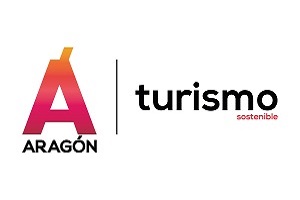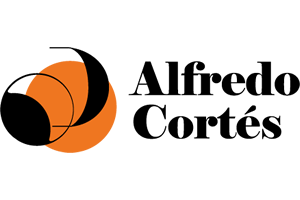“We would like to see things like Aragón Circular everywhere in the world”. This is how clear Carlos Álvarez, the vice president of the Club of Rome, an international think tank made up of scientists, economists, politicians and businessmen, was during the conference held yesterday in Zaragoza ‘Challenges and commitments to the Circular Economy: from Aragón to the world’. Words that endorsed the work done in the territory in this field and that, unfortunately, contrast with the trends still in force on the planet, according to what the leader of the club said in his speech.
The day, which brought together nearly 300 people in the auditorium of Caixaforum and its webcast, served to find the support of this organization to the policies on circular economy of the Government of Aragon, but also to draw from the current scenario and to develop a participatory workshop that revolved around the Aragonese business sector.
It was also the forum where the Minister of Economy of the Aragonese Executive, Marta Gastón, announced the publication of a call for aid for business R&D for circular economy projects, endowed with 8 million euros.

The vice president of the Club of Rome, in his speech ‘Opening the space of possibilities: Human and planetary well-being, together‘, congratulated the Community for Aragón Circular, the strategy that seeks to promote this concept in the territory. “Don’t think that this is what happens everywhere,” Álvarez stressed.
In fact, in his speech, he praised the “dynamics” that this plan is creating and welcomed the “peculiar mix” of “determination, practical mentality and humility” that the strategy shows. “A lot of good things are being done in a very positive direction,” he added.
However, the club member posited a current scenario in which the directions in this area are not in the same direction as that posed by the circular economy. In this regard, he recalled that human and planetary well-being “are not two different well-beings” and that there will be no such concept “on a planet that becomes uninhabitable for humans.”
“An uncomfortable question”
In line with this prediction, he recalled that it was 50 years ago that The Limits to Growth was published, the report of the Club of Rome in which the question was raised as to whether prosperity can lead to planetary collapse, “an uncomfortable question then and now,” he considered.
“Now we live in the reality that yes, reality can lead to collapse,” said Álvarez about a present that is experiencing several crises at the same time, such as climate change, geopolitical tensions, wars and inequality.
Regarding the report, he recalled that it already observed that the extractive and destructive model for ecosystems “was not viable in the long term”, but that “something better than that” could be done. “We haven’t done it yet, let’s be honest and realistic, but initiatives like the one that brings us here give some hope,” he added.
He also referred to the recently held COP 27, the United Nations conference on climate change. About it, he said that, although it has not advanced “as much” as he would have liked, “we must work at all levels” with initiatives as important, in his eyes, as Aragón Circular.
In this sense, she said that “the question” that the club is currently addressing is how to change “mentalities and practices” and how to create the conditions to achieve it. “That is what you are doing with Aragón Circular,” emphasized the club’s vice president, that is, “to become a little more like life.”

“Fundamental alliances”
The councilor was the one who opened a day that also served for the head of Economy and Alvarez to sign an agreement to promote and support the circular economy in the Community. In addition, Gastón, in the framework of the strategy currently being developed by the territory, announced the publication of a new call for aid for business R&D for circular economy projects, which will be endowed with 8 million euros and on which the department she directs is already working.
A week ago the resolution of the last call for subsidies of this type was published, the second launched from Economy, which will support a total of 16 innovative initiatives in circular economy that add up to a business investment of more than 23.43 million euros.
Half of these subsidized projects are the result of collaboration between several organizations, an example of the “fundamental alliances” to advance in this change of economic model, according to the minister.
“Collaboration, the involvement of the business fabric and commitment are enabling us to develop the Aragón Circular strategy,” stressed Gastón, who expressed her satisfaction with the results achieved with this plan, which is approaching its third year since it was launched.
Since then, the strategy has made it possible to promote the circular economy in the territory with various measures and dissemination actions to promote new sustainable initiatives, especially among companies.
Among them, in addition to R&D aid, the creation of a specific line of financing through the Society for the Industrial Development of Aragon (Sodiar) and the Aragon Circular Seal as a badge for companies and administrations that work in an exemplary way in the change towards this new economic model stand out. In its first call, this label has been awarded to 72 entities from different sectors spread throughout the territory.
The event held yesterday was also attended by various experts, such as the Director General of Planning and Economic Development of the Government of Aragon, Miguel Luis Lapeña, the professor of the University of Zaragoza and member of the Club of Rome Antonio Valero or the director of the Center for Business and Innovation of Aragon (CEEI), Celia Garcia.
A participatory workshop with 75 people
In the participatory workshop developed after the talks, 75 people and 12 coordinators, including the director of Go Aragon, Alfredo Cortés, participated around three sectoral groups, food, construction and industry and technology and services.
“We see in Aragón Circular an opportunity for the business development of the Community and the vertebration of the territory”, emphasized Cortes, who recalled that the medium is adhered to this “necessary” strategy; an initiative with which it is committed as regards the dissemination of its actions.














